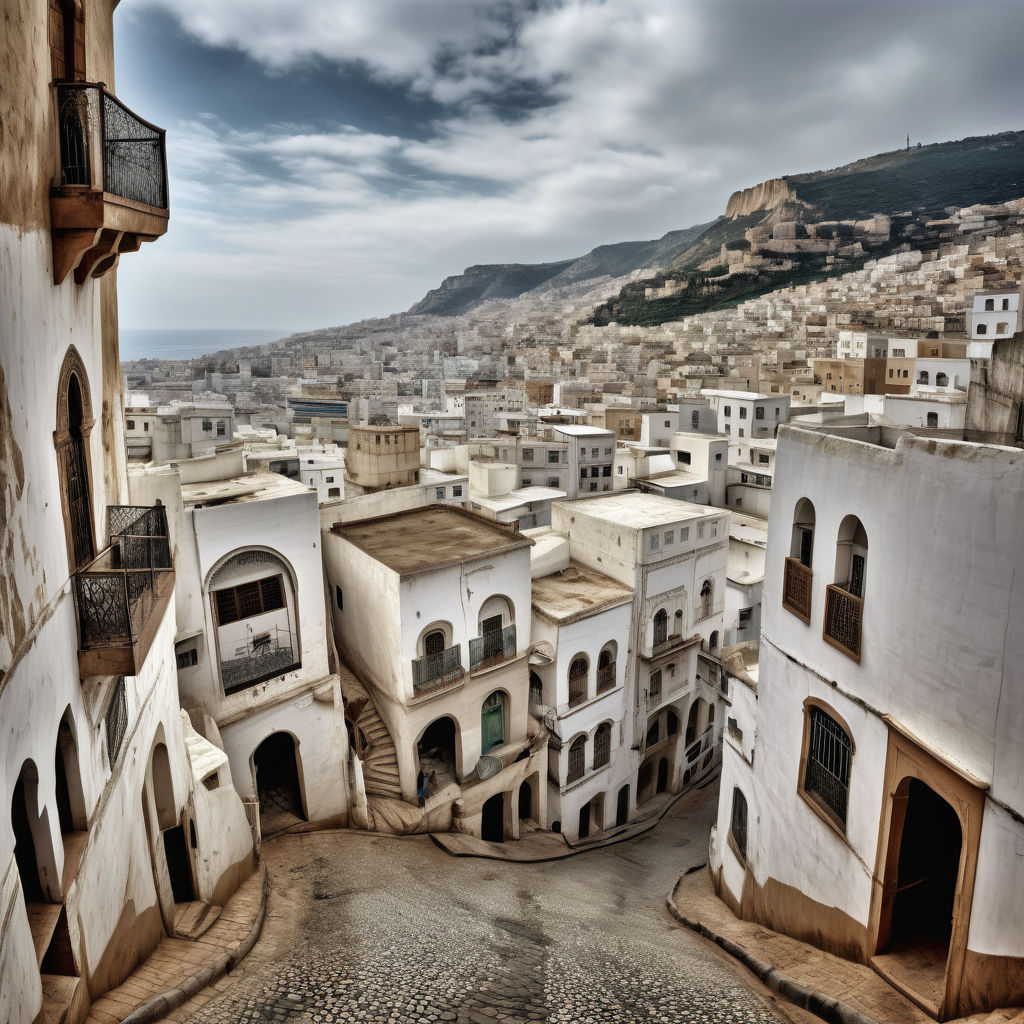Discover Algeria: A Journey Through Its Rich Cultural Heritage and Social Dynamics
Exploring Algeria’s Vibrant Culture, Social Interactions, and Cross-cultural Understanding

Introduction to Algeria
Algeria, officially known as the People's Democratic Republic of Algeria, is the largest country in Africa and the tenth largest in the world. It is located in North Africa and bordered by Tunisia and Libya to the northeast, Niger to the southeast, Mali and Mauritania to the southwest, Western Sahara to the west, and Morocco to the northwest. The Mediterranean Sea lies to the north. Major cities include Algiers (the capital), Oran, Constantine, Annaba, and Blida. Algeria’s rich cultural heritage is a blend of Berber, Arab, Ottoman, and French influences, reflected in its architecture, music, literature, and cuisine. The country is renowned for its historical sites, including ancient Roman ruins, medieval mosques, and the Casbah of Algiers.
Cross-national and Cross-cultural Understanding
Algerians generally engage with other cultures with a mix of curiosity, hospitality, and a strong sense of their own cultural identity. The country’s history as a crossroads between Africa, Europe, and the Middle East has fostered a deep appreciation for cultural diversity and international interaction. Algeria actively promotes cross-cultural understanding through various initiatives and programs. Significant cultural exchanges and educational programs highlight Algeria’s commitment to fostering global engagement. Institutions such as the Ministry of Culture and the National Centre for Research in Social and Cultural Anthropology promote Algerian culture internationally through events, exhibitions, and language courses. Additionally, the government supports scholarships and exchange programs that facilitate academic and cultural exchanges, fostering mutual understanding. International partnerships also enhance cross-cultural understanding. Algeria is an active member of international organizations such as the United Nations, the African Union, and the Arab League, promoting cultural cooperation and exchange. These partnerships facilitate student exchanges, collaborative research projects, and cultural festivals, strengthening Algeria’s cultural ties with the world.
Interactions and Social Dynamics
Interactions between Algerians and foreigners are typically characterized by warmth, respect, and a strong sense of community. Algerian social behaviors are influenced by cultural values such as "hospitality," "family," and "respect for elders." These values are often reflected in the way Algerians engage with outsiders. Social behaviors in Algeria emphasize respect and politeness in initial interactions, quickly becoming more informal and warm. Greetings often involve a handshake or a kiss on both cheeks, depending on the level of familiarity and respect. Hospitality is a significant aspect of Algerian culture, and guests are often treated with great care and generosity, frequently invited to share meals and participate in social gatherings. Communication styles in Algeria are generally indirect and polite. Algerians value harmony and avoiding confrontation, often using subtle language and non-verbal cues to convey their messages. Understanding these subtleties can be challenging for foreigners, but learning the language and cultural norms can help bridge this gap. Language plays a crucial role in facilitating interactions. Arabic is the official language of Algeria, while Berber (Tamazight) is also widely spoken. French is commonly used in business, government, and education, and English is increasingly popular among the younger generation. Multilingualism is valued and encouraged, especially in educational and professional settings.
Views on Dating and Relationships
Dating and relationships between Algerians and foreigners are becoming more common, particularly among younger generations and in urban areas. Algerian society tends to be conservative about relationships, heavily influenced by cultural and religious norms. However, there is a growing openness towards cross-cultural relationships as opportunities for international exposure increase. In Algerian dating culture, there is often a strong emphasis on family approval and social harmony. Relationships are typically pursued with a long-term perspective, and traditional gender roles can play a significant role. Men are often expected to be providers and protectors, while women are expected to be nurturing and supportive. Cultural expectations and traditions, such as the importance of family approval and adherence to religious practices, can impact relationships. Understanding and respecting these cultural norms is essential for successful cross-cultural relationships in Algeria.
Marriage and Family
Marrying foreigners is accepted in Algeria, though it comes with certain social and familial considerations. Legal considerations for such marriages involve specific regulations governed by Algerian civil and Islamic law. Non-Muslim spouses are often required to convert to Islam, which can be a significant consideration for cross-cultural marriages. Socially, Algerian families may initially have reservations about cross-cultural marriages due to concerns about cultural differences and social compatibility. However, acceptance typically increases as relationships develop and families get to know the foreign partner. Family plays a central role in Algerian culture, and marrying into an Algerian family often involves participating in family gatherings and traditions. Common practices in cross-cultural marriages include celebrating both Algerian and foreign traditions, creating a blended cultural environment. For example, a couple might celebrate Algerian holidays like Eid al-Fitr and Eid al-Adha alongside holidays from the foreign partner’s culture.